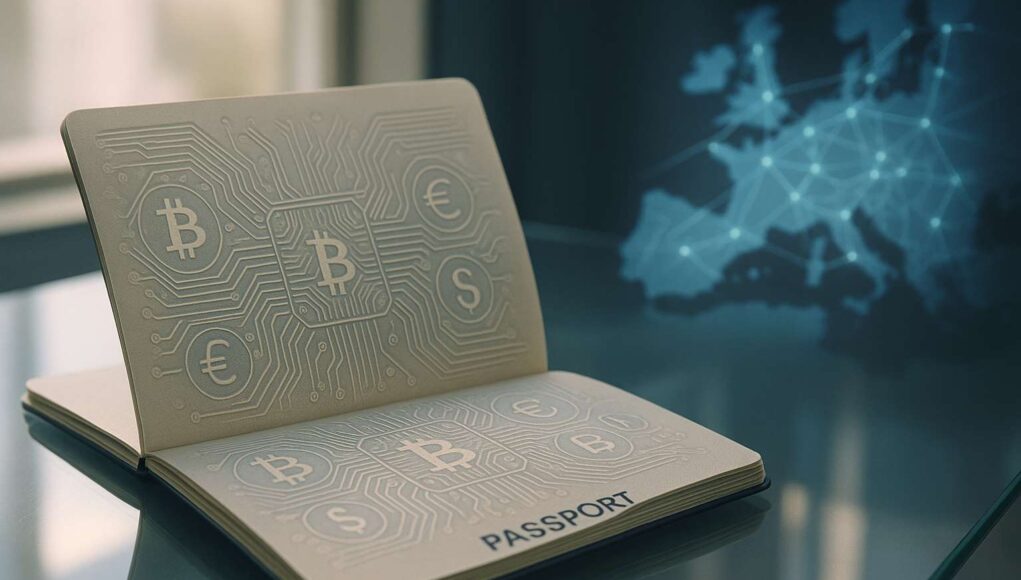TL;DR
- Zerohash earns Dutch MiCA authorization, allowing crypto and stablecoin services across 30 EEA markets.
- The license strengthens its role as a regulated infrastructure partner for banks and fintechs.
- Talks with Mastercard continue, with reports valuing the potential deal at $1.5–$2 billion.
Zerohash has received a MiCA license from the Netherlands Authority for the Financial Markets (AFM). It is among the first firms authorized to operate as a Crypto-Asset Service Provider (CASP) in Europe. The approval grants an EU CASP passport, which allows Zerohash to offer regulated crypto and stablecoin services across all 30 EEA markets.
This authorization turns Zerohash into a compliance-ready stablecoin infrastructure provider. It also arrives as Mastercard is reportedly exploring a $1.5–$2 billion acquisition, signaling that regulated crypto infrastructure is becoming a valuable strategic asset.
What the MiCA License Enables
The MiCA authorization in the Netherlands allows Zerohash to provide custody, exchange, and settlement of crypto assets. It also permits the company to issue or support fiat-backed stablecoins within the EU.
An AFM crypto license lets the firm serve clients across borders without applying for separate permits in each country. Under MiCA’s “passporting” model, a single license unlocks access to the entire bloc. That is a major simplification for fintechs and institutions that want to integrate digital-asset functions.
For readers wondering what a MiCA license allows in the EU, it covers most activities related to trading, custody, and transfer of crypto assets. All providers must still meet strict capital and compliance standards.
Inside Zerohash — The Infrastructure Behind the License
Founded in Chicago in 2017, Zerohash builds API-based infrastructure for digital assets. It lets banks, brokers, and fintech apps offer crypto products without handling tokens directly. Its platform handles on-chain settlement, liquidity routing, and regulatory reporting through a single interface.
Clients include Interactive Brokers, Stripe, Franklin Templeton, and Worldpay. These firms use Zerohash’s embedded rails for crypto and stablecoin transactions. The company has raised roughly $104 million, reaching a valuation near $1 billion in its last round.
Its system relies on segregated custody, automated KYC/AML checks, and real-time risk controls. These features align well with the new MiCA stablecoin rules and help Zerohash scale as a licensed service provider.
Why It Matters for Banks and Fintechs
Working with a licensed infrastructure partner removes the need to build an internal compliance stack. Through Zerohash’s API, banks can launch on-chain payment options or tokenized deposit products while staying within MiCA rules.
This move toward embedded crypto for banks reflects broader trends in tokenization in EU finance. Corporate treasuries are testing blockchain-based settlements for FX and cross-border payouts. Fintech wallets want stablecoins for faster transfers. With its MiCA license and plug-and-play technology, Zerohash becomes part of the core plumbing of Europe’s regulated digital-asset market.
The Mastercard–Zerohash Deal Talks
Industry outlets reported that Mastercard and Zerohash are in advanced talks. The deal has not been finalized, and neither company has confirmed the negotiations. Most reports cite Fortune, which estimated the potential valuation at $1.5–$2 billion.
If completed, the acquisition would expand Mastercard’s blockchain strategy. It would build on earlier pilots with Paxos and other tokenized settlement projects. The addition of a MiCA-authorized partner would strengthen Mastercard’s reach in stablecoin acceptance and regulated crypto infrastructure.
For now, the talks remain unconfirmed and subject to change. Still, the reported valuation range highlights the growing importance of licensed infrastructure providers in Europe’s new regulatory era.
Market and Policy Implications
The Zerohash case shows how MiCA is reshaping Europe’s crypto sector. Firms with strong funding and legal compliance now have a clear path to scale. Smaller startups may face rising costs and may need to partner with licensed entities.
More companies are expected to register with the AFM as CASPs, seeking EU-wide access under MiCA’s licensing framework. The rollout of MiCA effectively opened a new regulatory chapter, allowing licensed firms to scale across borders under a unified European passport. These early movers are set to anchor the institutional layer of Europe’s crypto ecosystem.
Compared to the fragmented US approach under FinCEN and NYDFS, Europe’s single license could offer faster growth and more consistent oversight.
What to Watch Next
- Updates from the AFM and ESMA as new MiCA standards take effect.
- Any confirmation, update, or denial regarding the Mastercard–Zerohash talks.
- Bank and payment-service pilots using MiCA-approved stablecoins for settlement.
- Rising demand for licensed stablecoin services in Europe as institutions seek regulated partners.
By securing its Zerohash MiCA license, the company has positioned itself as an EU-wide crypto passport provider ready to bridge traditional finance and the regulated digital-asset economy.










